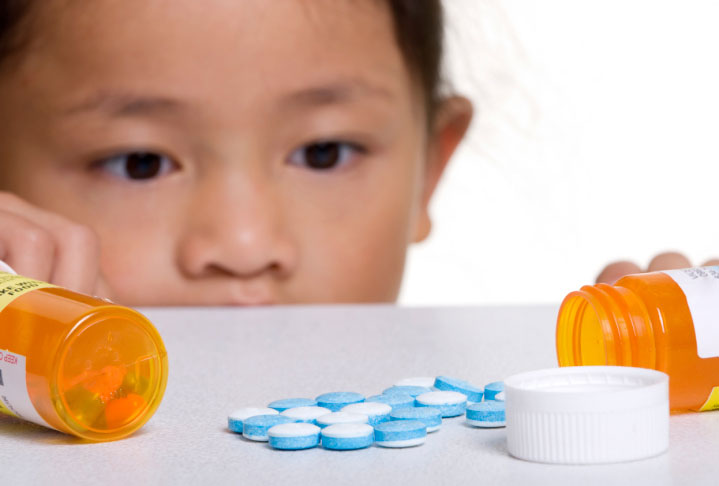
According to the Centers for Disease Control and Prevention, unintentional injuries are the leading cause of death in children from birth to 18 years old. One of the most common instances of this sort is accidental poisoning. Small children are curious by nature, and most of them will put anything—from colorful laundry pods to a glossy pill—in their mouths. Common items children find at home and ingest include prescription medication, cosmetics, and household cleaners.
What to Do After an Accidental Ingestion
If your child gets into a substance that is a possible toxin, call poison control immediately at 1-800-222-1222. Poison control has medical professionals on staff 24 hours a day, 7 days a week. Explain exactly what you think the substance can be to the poison control operator, which can then advise you on the next step. Keep this number in plain sight, and make sure all caregivers know to call it in case of an emergency.
Take Action
If you find your child with a substance that may be poisonous, assume he or she has eaten some. Take the following steps:
• Take the container away and check the mouth for residue. Remove any extra from the mouth with your fingers.
• Do not make your child vomit. This can lead to more problems. Call poison control first. An emergency room physician can induce vomiting if necessary.
• If your child is having difficulty breathing or is unconscious, call 911.
• Be prepared to answer some basic questions about your child’s health when you call poison control: age, height, weight, medical conditions, and any medications he or she may be taking.
Know Your Poisons
Different kind of poisons can irritate the skin or eyes, even if they are not ingested. If children come into contact with corrosive materials on their skin, remove their clothing and rinse them off with tepid water. For chemicals in the eyes, flush thoroughly with water. Hold the eyelid open, and pour tepid water into the corner. Flush for 15 minutes. Call poison control after you have the situation in hand, even if you feel like the child is no longer in danger. The operator may know more about the substance and can guide you to further aid or relieve you of future worry.
Do Not Ignore Serious Symptoms
The following symptoms merit emergency care. Call 911 immediately if you notice any of the following:
• Difficulty swallowing or breathing
• Confusion or drowsiness
• Vomiting or nausea
• Rashes or burns around the corners of the lips
• Breath or clothing that smells like chemicals
Call an ambulance and take inventory of your surroundings. The more your child’s medical team know about what he or she swallowed, the more equipped they are to address the problem.
Take Preventive Measures
Prevent accidental poisonings when possible with some basic precautions:
• Keep all household cleaners and poisonous substances in cabinets above the counters. If you must store cleaners like dishwasher fluid under the sink, install toddler-proof locks.
• Always ensure that child-proof lids on medication bottles are secured tightly. Because children are sometimes able to open these, an added measure of caution would be to keep them out of reach.
• Try natural alternatives to insect and pest control. Never put traps within reach of children.
• Keep remotes out of reach of children, as they can contain “button” batteries that can be harmful if swallowed.
• Constantly survey your home and any other place where your children spend time for potential threats.
Poisoning can have devastating consequences, but with a calm head and a preventive approach, you can keep your children safe from dangerous substances.



























